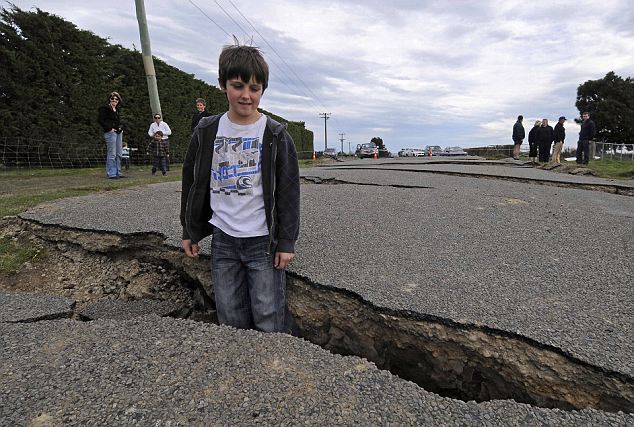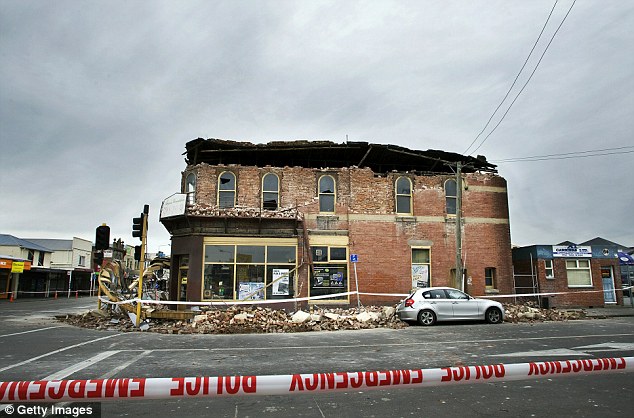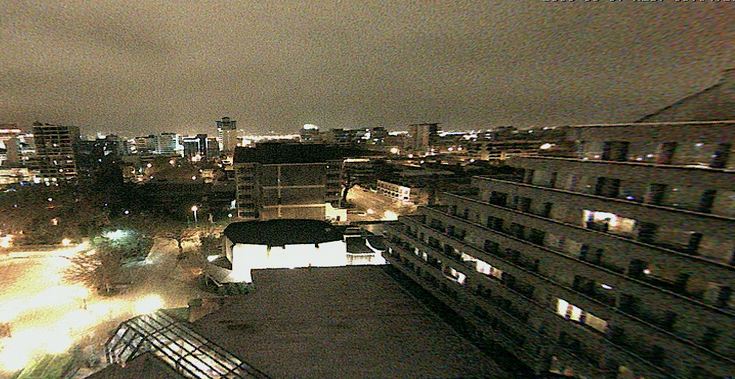http://earthquake.usgs.gov/earthquakes/recenteqsww/
Christchurch, New Zealand was hit with a 7.0 magnitude earthquake last Friday, which caused up to 11 feet of horizontal displacement. Yet no one was killed and only two people were injured.
Christchurch is located near a very active seismic zone, and they have planned for earthquakes.
The quake was about the same magnitude as the one in Haiti, yet they had a vastly different outcome – due to proper building codes.
Below is the kind of building you don’t want to have in an earthquake zone.
Below is a webcam image from downtown Christchurch today.
Instead of a disaster like in Haiti, the earthquake may turn out to be a boost to the city.
Helen Kevans, a senior economist at JPMorgan Chase & Co. in Sydney, made the following remarks about the economic impact of the earthquake that hit Christchurch on Sept. 4. She made the comments today in a telephone interview.
Next year “it could actually be positive for growth.
“You will probably see a massive lift to the construction sector, which has been dwindling in recent quarters.”
Recent evidence suggests “that the construction sector is really stalling.
“It’ll create tens of thousands of jobs, most of which will have to be sourced from outside of Christchurch. There will be a flood of immigration into the city” by construction workers.
“It should give a pretty big lift to household spending, and should have some knock-on effects throughout the economy.”
Helen Kevans, a senior economist at JPMorgan Chase & Co. in Sydney, made the following remarks about the economic impact of the earthquake that hit Christchurch on Sept. 4. She made the comments today in a telephone interview.
Next year “it could actually be positive for growth.
“You will probably see a massive lift to the construction sector, which has been dwindling in recent quarters.”
Recent evidence suggests “that the construction sector is really stalling.
“It’ll create tens of thousands of jobs, most of which will have to be sourced from outside of Christchurch. There will be a flood of immigration into the city” by construction workers.
“It should give a pretty big lift to household spending, and should have some knock-on effects throughout the economy.”







With the sort of thinking displayed by Helen Kevans, is it any wonder that the banking industry was so devastated last year? She has apparently never taken to heart something written by Frederic Bastiat in the 19th century, That Which is Seen, and That Which is Not Seen. The first part of this short pamphlet discusses in simple terms the fallacy of prosperity through destruction. (It can be read online here: http://bastiat.org/en/twisatwins.html ) If her wisdom is to be followed, we should go to war, have the entire country destroyed, rebuild from scratch, and end up being twice as wealthy.
To examine a more familiar event, by her thinking, Katrina was a huge blessing for New Orleans.
I think you should study some economics, Leon. And maybe try to avoid non sequiturs.
Rebuilding will boost the economy if it can be financed. Know of any reason why it can’t?
Clearly, Katrina wasn’t any kind of blessing for Nawlins. However, reconstruction could be, if financed properly and managed well.